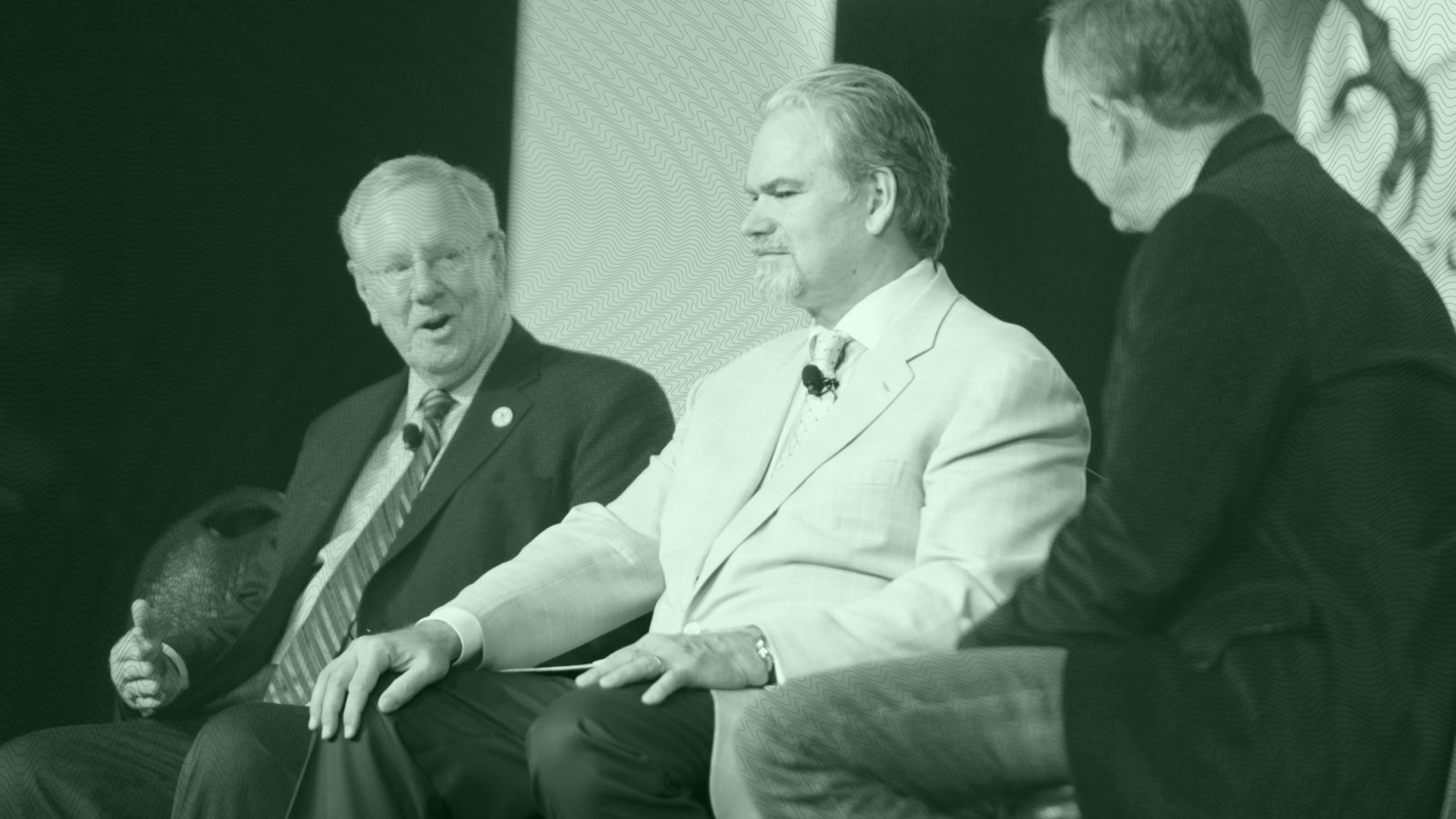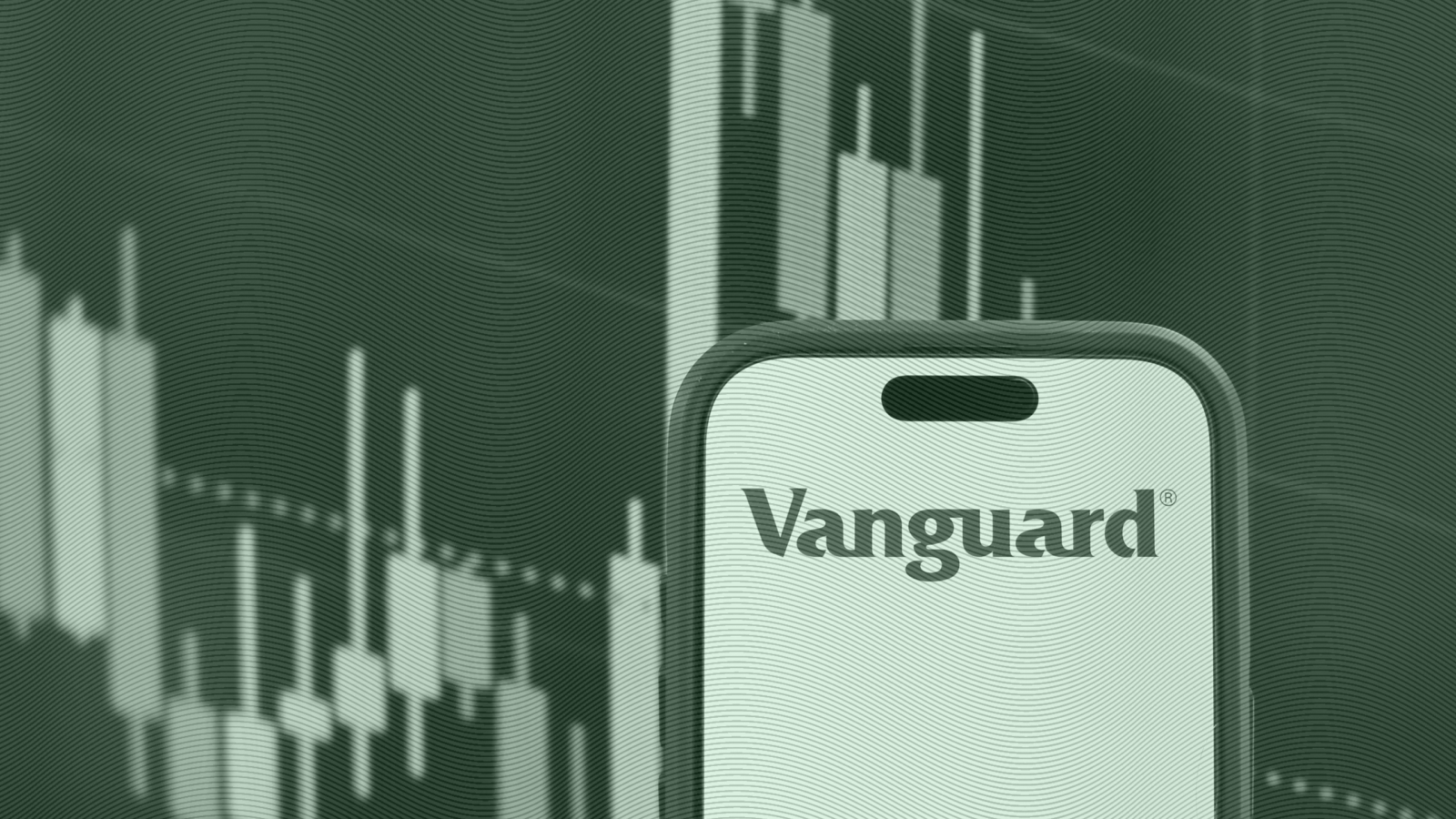Good morning.
It’s April, which means it’s National Canine Fitness Month, so remember to walk every day and get a few rounds of fetch in. However, if you’re one of our two-legged readers, it’s probably a good time to remind clients that April is also National Financial Literacy Month.
Created by a Senate resolution in 2004, National Financial Literacy Month is a time for financial institutions and wealth managers to promote frugality, smart investing, and proper budgeting. The US may be among the wealthiest countries in the world, but Americans aren’t the best at managing their money or understanding how their finances relate to the overall economy; far from it, actually. Less than half of Americans are considered financially literate, according to the Global Financial Literacy Excellence Center.
Congress might want to consider extending fin-lit month into May.
Rob Arnott on Deep Value and ‘Running Towards Lions’

Coming off a bad break-up? Famed investor Rob Arnott is here to help.
The founder of Research Affiliates, and an early pioneer in smart beta investing, Arnott launched a new index fund last year that attempts to turn underperforming stocks — that were literally kicked to the curb by other indexes — into profitable investments. Called NIXT, the deep-value exchange-traded fund relies on cheap valuations and poor recent performance of deleted stocks to find the best deals. While his ETF has returned a pedestrian (-5.37)% since its launch date in September, Arnott and his fellow researchers have found investors in a specific portfolio of dumped stocks would have seen their wealth grow 74 times from 1991 to the end of 2023.
“Index funds are thought to be passive — except where they add or drop stocks,” Arnott told Advisor Upside. “And, there, they are relentlessly active.” By adding stocks that are frothy and expensive, and dropping stocks that are cheap, indexes introduce an underlying, and very aggressive, growth tilt. Instead, NIXT favors the deleted stocks that have more room for future upside. Dating back to 1990, removed stocks actually beat traditional market benchmarks by more than 5% annually over the following five years, according to his research.
But Arnott is the first to admit that convincing clients to pull out of high-flying companies, like much of the famed Magnificent Seven, to diversify into cheaper alternatives is no easy task. “Aversion to pain, and to disappointment, is deeply embedded in the human psyche,” he said. “Our ancestors didn’t survive on the African plains by running towards a lion.” Advisor Upside caught up with Arnott and his team on the sidelines of the Exchange conference in sweltering Las Vegas last week.
AU: What’s the advantage of buying deleted stocks?
RA: Deletions on average are less than half the market multiple, while the stocks you’re adding to the index — the stocks that the index funds are buying — are priced at six times the valuation. That’s a massive spread, and that was the genesis for the idea. So, we did all of this analysis and we found that deletions on average outperform the market over the five years after they’ve been deleted. On the other hand, additions lightly underperform until they’re a little less frothy. So, the opportunity is certainly there on the deletion side.
Why do you see so much opportunity in value?
Value is incredibly cheap today; small caps are incredibly cheap today; and small-cap value is unbelievably cheap today. Advisors can tell customers that value is phenomenally cheap, and you’ve made a lot of money in the so-called Magnificent Seven. Why don’t you redeploy a little bit of that? Let’s take 10% of your Mag 7 money this quarter and put it in deep value. If it goes against us — and it probably will for a while because we can’t pick when the turn will happen — next quarter, let’s do another 10%. Pretty soon, you’ve built up a nice-size position in a segment of the market that is phenomenally cheap. That can be a winning formula.
So, is it all about diversification?
It’s about diversification, and relative-valuation evaluation. One of our former colleagues named Jason Hsu was fond of saying that diversification is a “regret-maximizing” strategy. In a roaring, growth-dominated bull market, you will regret every penny you have in diversifiers. And when that market breaks, you’ll regret not having money in there. So, let’s brace yourself and put some money in diversifiers, and just put it out of your mind. Just say: As long as this market is on a roll, this is going to be a disappointing part of my portfolio. But it’s there for when the market breaks.
What can advisors take away from your investment philosophy?
The job of a financial advisor is to save the client from themselves. And clients relentlessly make two mistakes: performance chasing and impatience. People simply think they’re more patient than they are. But human nature conditions us to want more of whatever has felt good. And if something’s a bargain, it probably got there by inflicting pain and losses, and people don’t want what’s caused pain and losses. People also don’t want to sell what’s caused joy and profit. Asking clients to do something that is terribly uncomfortable is difficult.
For financial advisors, serving clients means helping the client not do incredibly stupid things. Errors that are bloody costly. Recent experience with the Mag 7 was wonderful, but in the last few weeks, not so much. If you buy the crash, buy the asset that’s dirt cheap, not the asset that’s gone from breathtakingly expensive to merely very expensive. Like I said, it goes against human nature, but if a financial advisor can encourage the client to just average into what’s really cheap and take modest profits on what’s really expensive, they’re doing their client a huge service.
Navigate Fixed Income. Invest In Expertise.

Leveraging the expertise of Wellington Management’s US Broad Markets team, Hartford Funds fixed-income strategies give you access to the scale, skill and specialization you need to uncover opportunity in today’s bond markets.
Wellington Management has been investing in fixed income for nearly 100 years. With over 264 fixed-income professionals including specialists across all credit sectors, the firm manages $553 billion in fixed-income assets.*
Hartford Funds partners with Wellington’s US Broad Markets Team to offer a range of fixed-income strategies that help meet client needs.
These include mutual funds like the Hartford Total Return Bond Fund (ITBIX) and Hartford Strategic Income Fund (HSNIX) but also active ETFs like the Hartford Core Bond ETF (HCRB), Hartford Total Return Bond ETF (HTRB) and Hartford Strategic Income ETF (HSUN).
RIAS are Worth More Than Ever
RIAs are worth money — like, a lot of money.
Last year, the RIA industry not only saw a record volume of deals with 239 transactions, but median valuation multiples on earnings before interest, taxes, depreciation, and amortization (EBITDA) also increased to a record of 11x, up from 9.9x in 2023 and a new high going back nearly a decade, according to Advisor Growth Strategies. What do all those integers and variables that look straight out of high school algebra class mean? Sellers can get an even prettier penny when they offload their firms than just a year ago. With 2025 shaping up to be another high activity year for M&A, those valuations could go up even further.
“Overall, things are really good for sellers,” said Brandon Kawal, partner at Advisor Growth Strategies, adding that the Phoenix-based consulting firm was surprised to see more than 40 buyers complete multiple deals in 2024.
Solve for X
After a tepid 2023 that lacked some of the larger deals seen today, the RIA industry has become a seller’s market thanks to private equity’s growing presence in the wealth management space and older firm owners cashing in and retiring. M&A activity is so high that some 96% of RIAs who responded to Advisors Growth Strategies’ survey said they get at least two calls a month about potential deals:
- In 2024, the median deal size was $536 million.
- Since the start of the decade, the median valuation multiple has increased 35%, up from 8x in 2020.
Exception to the Rule. Despite deal volumes and valuations growing, the arrow doesn’t point up for all sellers, Kawal said. “We expect buyers will continue to lean in on the best opportunities but take a measured approach to those average opportunities,” he said, adding that driving a solid premium requires plenty of organic growth, a portable client experience, and an incentivized next-gen team.
- ETFs Are Breaking Records. Get the full breakdown today.
- Subscribe To ETF Upside For Free — smarter ETF strategies start right now.
Vanguard Pushes Ahead with Another Active ETF

Vanguard has been anything but passive while rolling out active ETFs.
The fund giant filed a prospectus with the Securities and Exchange Commission this week for the latest installment in its growing roster of active exchange-traded funds: The Vanguard Multi-Sector Income Bond ETF. The new product is notable as Vanguard is the only company with the SEC’s blessing to use dual share classes that allow mutual funds to operate like ETFs. Currently, that doesn’t extend to actively managed strategies, but active ETFs are kind of a thing right now.
Extra Upside
- Across the Pond. Investors pour a record $11 billion into European ETFs.
- All-Star Group. Industry vets from Goldman, Hightower and H.I.G. Capital launch alternatives firm.
- Fixed income built for what’s next. Partner with Hartford Funds to access a broad range of active fixed-income ETFs and mutual funds powered by the skill, scale and specialization of Wellington Management’s US Broad Markets team.**
** Partner
Advisor Upside is edited by Sean Allocca. You can find him on LinkedIn.
Advisor Upside is a publication of The Daily Upside. For any questions or comments, feel free to contact us at advisor@thedailyupside.com.
Disclosures
*As of 9/30/24. Wellington Management refers to Wellington Management Company LLP and its affiliates. Firm assets include assets under management and non-discretionary assets.
Investing involves risk, including the possible loss of principal. Fixed income security risks include credit, liquidity, call, duration, event, inflation and interest-rate risk. As interest rates rise, bond prices generally fall.
ETFs are not mutual funds. Unlike traditional open-ended mutual funds, ETF shares are bought and sold in the secondary market through a stockbroker. ETFs trade on major stock exchanges and their prices will fluctuate throughout the day. Both ETFs and mutual funds are subject to risk and volatility.
Investors should carefully consider a fund’s investment objectives, risks, charges and expenses. This and other important information is contained in the fund’s full prospectus and summary prospectus, which can be obtained by visiting hartfordfunds.com. Please read it carefully before investing.
Mutual funds are distributed by Hartford Funds Distributors, LLC (HFD), Member FINRA. Advisory services are provided by Hartford Funds Management Company, LLC (HFMC). ETFs are distributed by ALPS Distributors, Inc. (ALPS). Certain funds are sub-advised by Wellington Management Company LLP. HFMC and Wellington Management are SEC registered investment advisers. Hartford Funds refers to HFD and HFMC, which are not affiliated with any sub-adviser or ALPS.

